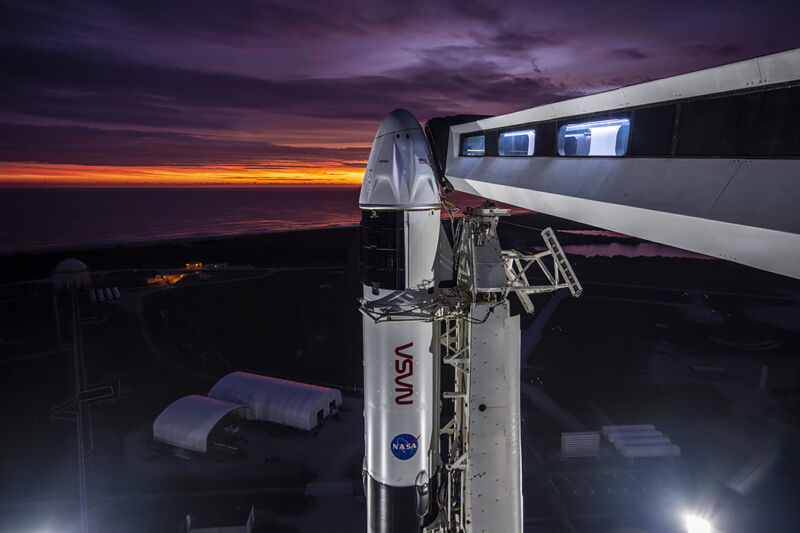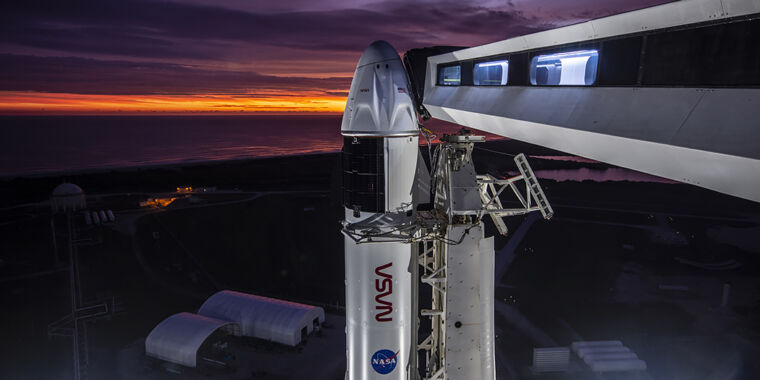
SpaceX
There’s an emerging truth about NASA’s push toward commercial contracts that’s increasingly hard to escape: Companies not named SpaceX are struggling with NASA’s approach to awarding fixed-price contracts for space services.
This belief is underlined by the latest award of an $843 million contract to SpaceX for a heavily modified Dragon spacecraft that will be used to orbit the International Space Station in 2030.
The recently released source selection statement for the “US Deorbit Vehicle” contract, a process led by NASA’s Director of Space Operations Ken Bowersox, reveals that the competition was a complete stampede. SpaceX faced only one serious competitor in this process, Northrop Grumman. And in all three categories—price, mission suitability, and past performance—SpaceX significantly outperformed Northrop.
While it is wonderful that NASA has an excellent contractor in SpaceX, it is not healthy in the long term that there are so few credible competitors. Furthermore, a close reading of the source selection statement reveals that NASA really had to work to get a contest at all.
“I was really happy that we got the proposals from the companies that we did,” Bowersox said during a media conference last week. “The companies that sent us proposals are both great companies, and it was great to see that interest. I would have expected a few more [proposals]honestly, but I was very happy to get the ones we got.”
Commercial initiatives struggle
NASA’s venture into “commercial” space began nearly two decades ago with a program to deliver cargo to the International Space Station. The space agency initially chose SpaceX and Rocketplane Kistler to develop the rockets and spacecraft to accomplish this, but after Kistler missed milestones, the company was subsequently replaced by Orbital Sciences Corporation. The cargo delivery program was largely successful, resulting in the Cargo Dragon (SpaceX) and Cygnus (Orbital Sciences) spacecraft. It continues to this day.
A commercial approach generally involves NASA paying a “fixed” price for a service rather than paying a contractor’s costs plus a fee. It also means that NASA hopes to become one of many customers. The idea is that NASA, as the first on the road, will help stimulate a market where its fixed-price contractors can also sell their services to other entities – both private companies and other space agencies.
NASA has since expanded this commercial approach to crew, with SpaceX and Boeing winning major contracts in 2014. However, only SpaceX has flown operational astronaut missions, while Boeing remains in the development and testing phase, with its ongoing Crew Flight Test. While SpaceX has sold half a dozen private missions on Dragon, Boeing has yet to announce any.
Such a commercial approach has also been tried with the delivery of lunar cargo through the “Commercial Lunar Payload Services” program, as well as larger lunar landers (Human Landing System), next-generation spacesuits and commercial space stations. Each of these programs has a mixed record at best. For example, NASA’s inspector general was very critical of the lunar payload program in a recent reportand one of the two spacesuit contractors, Collins Aerospace, recently dropped out because it could not fulfill its fixed price agreement.
Some of NASA’s main traditional space contractors, including Lockheed Martin, Boeing and Northrop Grumman, have all said they are reconsidering whether to enter fixed-price contract competitions in the future. For example Northrop CEO Kathy Warden said last August“We are even more disciplined to make sure we work with the government to have the right use of fixed price contracts.”
So the big traditional space contractors don’t like fixed-price contracts, and many new space companies are struggling to survive in this environment.
#SpaceX #beat #competition #contract #good
